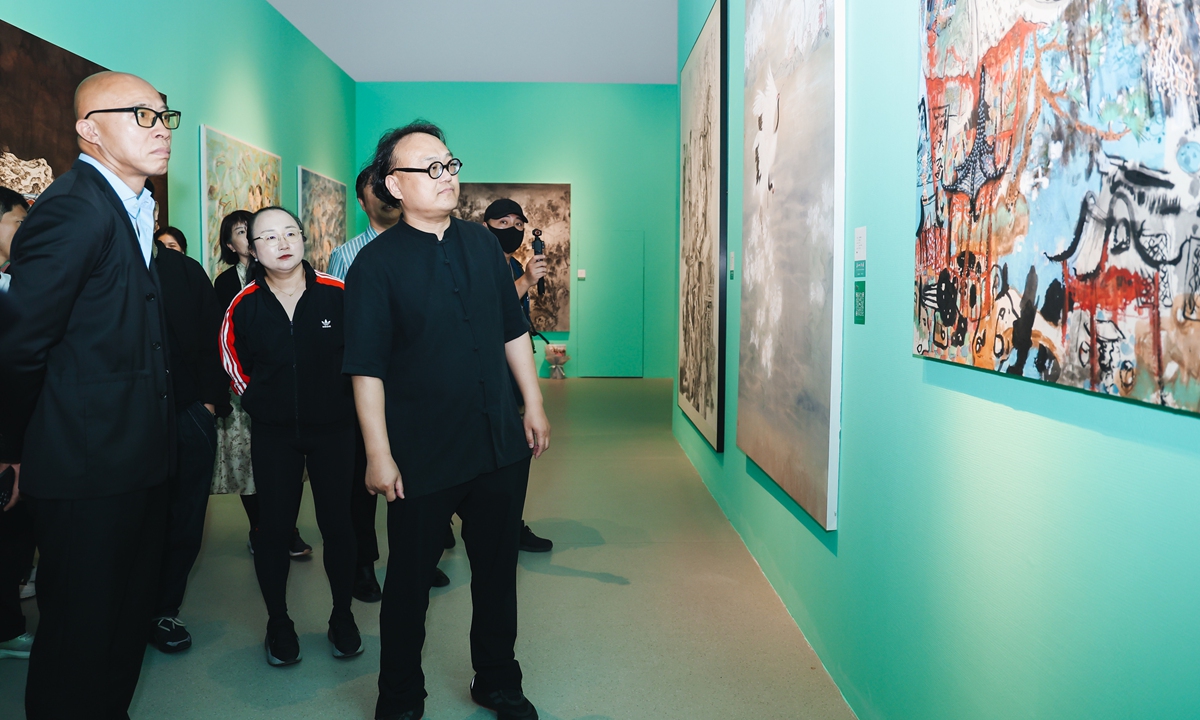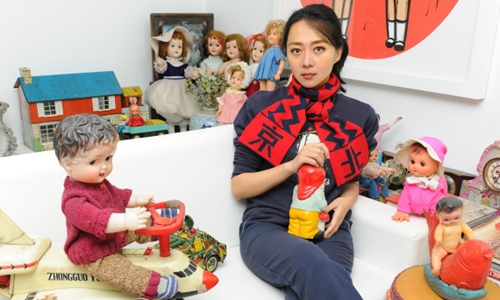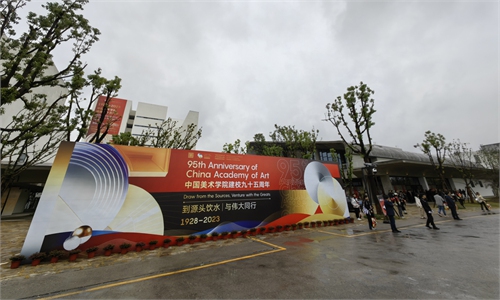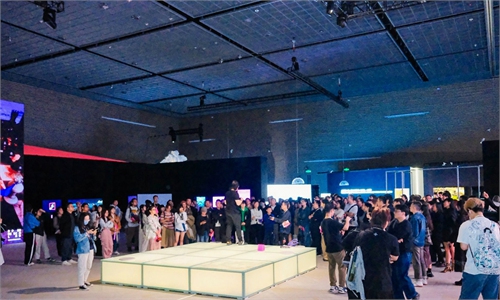
Gao Shiming (right), president of the China Academy of Art, tours a graduation exhibition in Hangzhou, East China's Zhejiang Province, on June 1, 2024. Photo: Courtesy of China Academy of Art
From paintings, urban designs to AIGC videos and installations, the artworks from 2,868 graduates of the China Academy of Art (CAA) this year have turned the city of Hangzhou in Zhejiang Province into the sea of art in eight exhibition areas across the city since Saturday.
"We unite the forces from all walks of life, allowing the graduation exhibition to go out of the campus and bloom all over the city," Gao Shiming, president of the academy, told the Global Times. "It forms an art feast spread across the city and creates an urban festival full of youthful atmosphere and creative energy."
The 2024 CAA Graduation Season takes "World Tree" as its theme. The World Tree guides spectators to look at the world with the eyes of life and explore inward at the same time. Every time we set out, we will extend our branches to higher and further places, or take root and explore in deeper and more specialized areas. Every action is a small exploration that ushers in a new life.
In various legends and tales in the world, the World Tree was once a passage connecting heaven, earth and humans. "Now, the ancient legend will guide us to re-understand the world from the perspective of life and understand people from the perspective of nature," said Gao.
This year's theme is the fruit of inheritance and extension of previous years. Starting from the year 2019, the theme that year, "Youth - View - World," was about openness and diversity. Due to the COVID-19 pandemic, the year 2020 was a response to rethinking about lifestyles and the following year of 2021 followed that reflection. In 2022, the graduation season advocated for an "upward and forward life," while in year 2023 the CAA tried to build a "brain garden for everyone." All in all, the CAA's graduation season displays not just the fruits of labor, but also the flowers of the future, the new phenomena that art brings to the world.
Following the idea of art that stems from life and is applied to it, graduates focused on various sources of inspiration. Some focused on rural themes, like weddings and funerals in villages, through paintings as well as making their parents, who are rural doctors, the subjects of their art.
Inspired by China's aerospace achievements, Zhou Yu's print work Tianwen depicts a romantic exploration of the universe from the perspective of Chinese taikonauts. Ma Xuan's painting Mogao Here is inspired by the special landforms of Northwest China, covering the Mogao Grottoes, Yardang landforms and snow-capped mountains in the Dunhuang area of Northwest China's Gansu Province.
"My work fits the theme of the World Tree, allowing different landforms to appear in the same picture, pursuing a kind of tranquility and a profound concept of traditional Chinese landscapes," Ma told the Global Times.
When touring the paintings on display, Gao commented, "In fact, every painter uses painting to speak to the world. Viewers need to understand and find the message by themselves."
Wang Shu, a renowned architect and dean of the School of Architecture at CAA, posed four questions concerning urban design and the relationship between cities and villages for graduates to explore.
"Now we have to see the future of how we can reintroduce cultural remains to the city and then survive. We have here six protect projects that will express and explore more detailed observations," said Olivier Greder, director of the Department of Urban Design, CAA.
Many designs provide new expressions that focus on traditional Chinese culture. The work Shadow Voice from Mao Junhong allows the ancient art of shadow puppetry to "speak out" again through cultural and creative products. Through this, he hopes that his works "can push shadow puppetry further into the future."
In Gao's view, the graduation season is, on the one hand, a collective public display of the graduation works of thousands of young students, forming a unique national aesthetic education course. On the other hand, it is also the interaction between the college and society, giving rise to an increasingly rich and diverse artistic environment.




